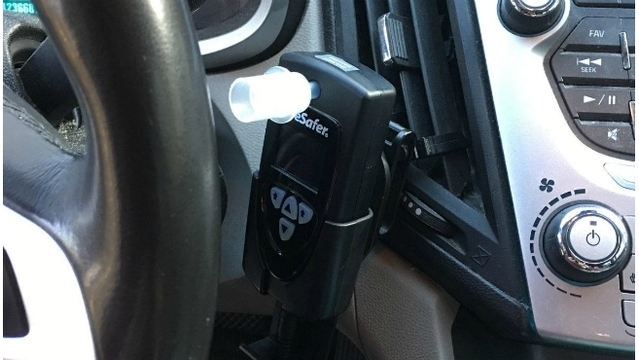
In a letter sent last week, Catherine Chase, president of the Advocates for Highway and Auto Safety, urged New Jersey Gov. Philip Murphy to sign into law Senate Bill 824 — legislation that requires ignition interlock devices (IIDs) for all convicted drunk drivers.
The move would put New Jersey in line with 33 other states, and it is one Advocates said would advance safety measures. The law allows no exceptions, not even for first-time offenders.
“Drunk driving is a deadly and costly threat to New Jersey families,” Chase said. “In 2017, 192 people were needlessly killed in alcohol-involved crashes on New Jersey roads accounting for 32 percent of all traffic fatalities. The vast majority of these fatalities, 79 percent, involved a driver over the limit of .08 percent blood alcohol content (BAC). Moreover, all traffic crashes cost the state over $12.8 billion each year. Clearly, this is a serious issue on New Jersey roads which requires urgent attention and the effective solution of an all-offender IID law.”
Chase said that most drunk drivers are repeat offenders — not people making a one-time mistake. She also quoted Federal Bureau of Investigation (FBI) statistics which estimate around 300,000 incidents of drunk driving each day, with an arresting figure of just 4,000. Even suspending licenses has not seemed to stop the trend, with a 2012 AAA report finding that 50 to 75 percent of convicted drunk drivers continue to drive impaired.
By contrast, the Centers for Disease Control and Prevention (CDC) have found that when IIDs are installed, arrest rates for impaired driving drop by about 70 percent.
Under current New Jersey law, IIDs are only required for refusals, repeat offenders and first-time offenders with BACs of 0.15 or higher.
“The American public strongly agrees that IIDs are needed to address this public health crisis,” Chase said. “Nearly eight in ten Americans support requiring ignition interlocks for all convicted DUI offenders, even if it’s their first conviction. Furthermore, 82 percent of offenders believe the IID was effective in preventing them from driving after drinking.”
The request for change comes amidst rising traffic fatalities on New Jersey roads. From 2013 to 2017, there was a 15 percent increase in such fatalities, prompting advocates to push for safety changes.